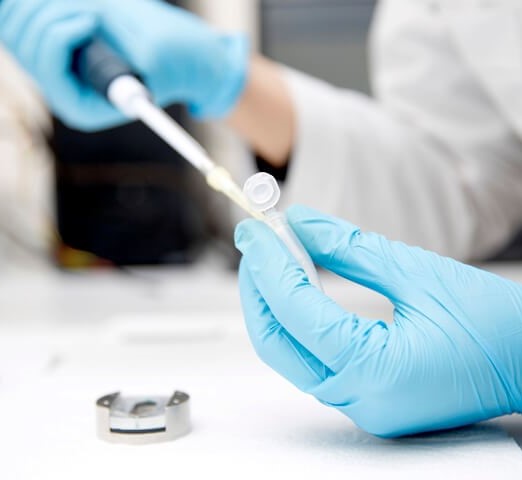A new, personalised approach to the use of immunotherapies could radically change the way cancer treatments are selected for people with advanced cancers.
Led by Dr James Wilmott, senior scientist of the Translational Melanoma Research Group of Melanoma Institute Australia, this research program is aiming to rapidly match people with the most effective therapy to significantly increase survival rates.
Established with a $3.75m grant over five years from the Cancer Institute NSW, it is one of three Translational Program Grants worth $11m awarded in 2021.
“Despite advances in cancer treatments and increased survival of people with cancer, standard treatments are unable to cure the majority of patients,” Dr Wilmott explains.
“This program will screen people with cancer for genetic and immune profiles to identify which ones are unlikely to benefit from standard treatments, and assign them to the novel treatment with the best chance of a cure.”
Better outcomes for people with advanced melanoma
The work will begin with a key focus on melanoma – a type of skin cancer that starts in cells known as melanocytes, the pigment producing cells of the skin and eye.
Currently, the most effective treatments for advanced melanoma are the immunotherapy drugs that release the brakes on our body’s own immune system to attack tumour cells.
These treatments have increased the five-year survival rate for people with advanced metastatic melanoma from 15 per cent to more than 50 per cent. But even with access to these therapies a significant proportion of melanoma patients die every year.
The Translational Program Grant is enabling the team to conduct a Personalised Immunotherapy Platform, which aims to match patients to novel drugs currently entering clinical trials.
This could make the next leap in cure rates by identifying effective therapies for these high-risk patients.
How does the Personalised Immunotherapy Program work?
Firstly, the team screen the person’s tumour for its genetic and immune profiles and enter this information into an artificial intelligence-based model. This model will predict if they are likely to respond to standard immunotherapy.
Secondly, for those unlikely to respond to standard treatments, the team tests for the presence of more than 60 other immunotherapy drug targets in a person’s tumour.
This information can then be used by the clinical teams to select a novel clinical trial drug which will give them the best chance of a cure. It means the selection of immunotherapy will be personalised to the person’s disease.
The work so far has been based on the treatment of melanoma patients, but this Translational Program Grant will expand testing into other key cancer types, including lung, kidney, merkel cell, and head and neck.
Ultimately the aim is to bring any advances made on melanoma to other high-mortality cancers.
Towards zero deaths from melanoma
Dr Wilmott is research leader of the Translational Melanoma Research Group of Melanoma Institute Australia, a National Health & Medical Research Council (NHMRC) Investigator Fellow, and Senior Lecturer at The University of Sydney.
Through Melanoma Institute Australia, he is part of the commitment to zero deaths from melanoma.
As a translational research scientist, Dr Wilmott works closely with clinical groups to identify areas of need, discovery solutions and work collaboratively to implement these findings and improve patient outcomes.
He has received many accolades for his work, which is having an international impact, including the Wildfire Highly Cited Publication Award at the NSW Premier’s Awards for Outstanding Cancer Achievement twice, in 2016 and 2020.


